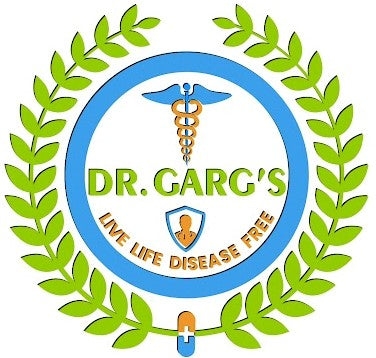Slip Disk
Overview of Slip Disk: Causes, Symptoms, Diagnosis, and Homeopathic Treatment

Introduction:
In today's fast-paced world, sedentary lifestyles and poor posture have contributed to a rise in spinal issues, including slip disk, also known as a herniated or bulging disk. This blog post aims to provide an overview of slip disk, including its causes, symptoms, diagnosis, and an alternative approach to treatment through homeopathy.
What is Slip Disk?
A slip disk, or herniated disk, refers to a condition in which the soft cushioning disk between the vertebrae of the spine protrudes or bulges out of place. This displacement can put pressure on nearby nerves, leading to pain, numbness, or weakness in the affected area.
Causes of Slip Disk:
Several factors can contribute to the development of slip disk, including:
1. Age-related degeneration:
The wear and tear of spinal disks over time can weaken them, making them more susceptible to herniation.
2. Improper lifting techniques:
Lifting heavy objects with incorrect form can strain the back and lead to disk herniation.
3. Trauma or injury:
Sudden pressure or impact on the spine due to accidents or falls can cause a slip disk.
4. Sedentary lifestyle:
Lack of physical activity weakens the supporting muscles of the spine, making it more prone to disk problems.
5. Obesity:
Excess weight places additional stress on the spine, increasing the risk of disk herniation.

Symptoms of Slip Disk:
The symptoms of slip disk may vary depending on the location and severity of the herniation. Common signs and symptoms include:
1. Back pain:
Dull or sharp pain in the affected area, often aggravated by movement.
2. Radiating pain:
Pain that extends to the buttocks, legs, and feet (if the slip disk is in the lower back) or to the shoulders, arms, and hands (if in the neck).
3. Numbness and tingling:
Sensations of numbness, tingling, or a "pins and needles" feeling in the affected area.
4. Muscle weakness:
Weakness or difficulty in moving the muscles related to the affected nerves.
5. Changes in reflexes:
Diminished or exaggerated reflexes in the affected area.
Diagnosis of Slip Disk:
To diagnose a slip disk, medical professionals employ various methods, including:
1. Medical history and physical examination:
The doctor will inquire about symptoms and perform a physical examination to assess nerve function, reflexes, and muscle strength.
2. Imaging tests:
X-rays, CT scans, or MRI scans can provide detailed images of the spine to identify the location and severity of the slip disk.
3. Nerve function tests:
Electromyography (EMG) or nerve conduction studies can help evaluate nerve function and determine the extent of nerve damage.
Homeopathic Treatment of Slip Disk:
Homeopathy, a holistic approach to healing, can offer potential benefits for slip disk management. Although homeopathic treatments should be pursued under the guidance of a qualified homeopathic practitioner, some commonly used remedies for slip disk include:
1. Rhus tox:
Useful for pain and stiffness that worsen with initial movement but improve with continued motion.
2. Hypericum:
Effective for shooting or radiating nerve pain associated with slip disk.
3. Arnica:
Helpful for relieving pain, inflammation, and bruising due to spinal injuries.
4. Bryonia:
Recommended for pain aggravated by any movement, with relief from rest.5. Kali carb:
Beneficial for back pain, weakness, and heaviness due to slip disk.
It is essential to consult a licensed homeopathic practitioner for a personalized approach based on individual symptoms and overall health.
Conclusion:
Slip disk can cause considerable discomfort and hinder daily activities. Understanding its causes, recognizing symptoms, and obtaining an accurate diagnosis are crucial steps in managing this condition. While conventional treatments exist, exploring homeopathic remedies under professional guidance can offer an alternative approach to slip disk management, aiming for holistic healing and relief from associated symptoms. Remember, each case is unique, and it is essential to consult with Dr. Garg’s Clinic for an accurate diagnosis and appropriate treatment plan.
